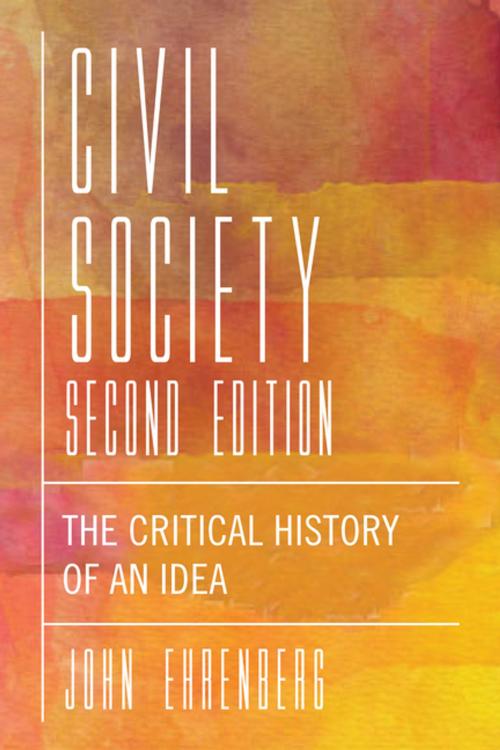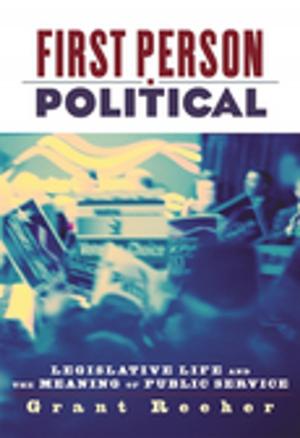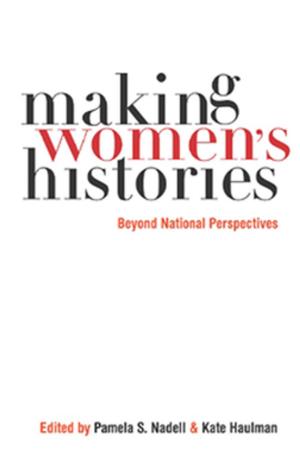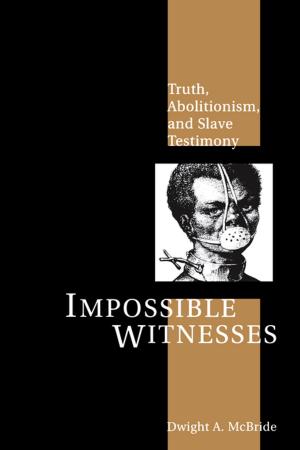Civil Society, Second Edition
The Critical History of an Idea
Nonfiction, Social & Cultural Studies, Political Science, Government, Public Affairs & Administration, Politics, History & Theory| Author: | John R. Ehrenberg | ISBN: | 9781479871629 |
| Publisher: | NYU Press | Publication: | February 14, 2017 |
| Imprint: | NYU Press | Language: | English |
| Author: | John R. Ehrenberg |
| ISBN: | 9781479871629 |
| Publisher: | NYU Press |
| Publication: | February 14, 2017 |
| Imprint: | NYU Press |
| Language: | English |
A comprehensive discussion and analysis of two and a half millennia of Western political theory
In the absence of noble public goals, admired leaders, and compelling issues, many warn of a dangerous erosion of civil society, which includes families, religious organizations, and all other NGOs. Are they right? What are the roots and implications of their insistent alarm? How can public life be enriched in a period marked by fraying communities, widespread apathy, and unprecedented levels of contempt for politics? How should we be thinking about civil society?
In Civil Society: The Critical History of an Idea, John Ehrenberg analyzes both the usefulness and the limitations of civil society and maps the political and theoretical evolution of the concept and its employment in academic and public discourse. From Aristotle and the Enlightenment philosophers to Black Lives Matter and the Occupy movement, Ehrenberg provides an indispensable analysis of the possibilities of what this increasingly important idea can, and cannot, offer to contemporary political affairs.
In this new, second edition Ehrenberg brings the historical overview up to present day, specifically considering how major events such as 9/11, the global financial crisis, economic inequality, and rapidly advancing technologies alter and shape our relationship to contemporary civil society. Civic engagement, political participation, and volunteerism in contemporary life has faded, he argues, and in order to bring civil society—and all its virtues—back to the fore, we need to counter the suffocating inequality that has taken hold in recent years. Thorough and accessible, Civil Society gives a sweeping overview of a foundational part of political life.
A comprehensive discussion and analysis of two and a half millennia of Western political theory
In the absence of noble public goals, admired leaders, and compelling issues, many warn of a dangerous erosion of civil society, which includes families, religious organizations, and all other NGOs. Are they right? What are the roots and implications of their insistent alarm? How can public life be enriched in a period marked by fraying communities, widespread apathy, and unprecedented levels of contempt for politics? How should we be thinking about civil society?
In Civil Society: The Critical History of an Idea, John Ehrenberg analyzes both the usefulness and the limitations of civil society and maps the political and theoretical evolution of the concept and its employment in academic and public discourse. From Aristotle and the Enlightenment philosophers to Black Lives Matter and the Occupy movement, Ehrenberg provides an indispensable analysis of the possibilities of what this increasingly important idea can, and cannot, offer to contemporary political affairs.
In this new, second edition Ehrenberg brings the historical overview up to present day, specifically considering how major events such as 9/11, the global financial crisis, economic inequality, and rapidly advancing technologies alter and shape our relationship to contemporary civil society. Civic engagement, political participation, and volunteerism in contemporary life has faded, he argues, and in order to bring civil society—and all its virtues—back to the fore, we need to counter the suffocating inequality that has taken hold in recent years. Thorough and accessible, Civil Society gives a sweeping overview of a foundational part of political life.















